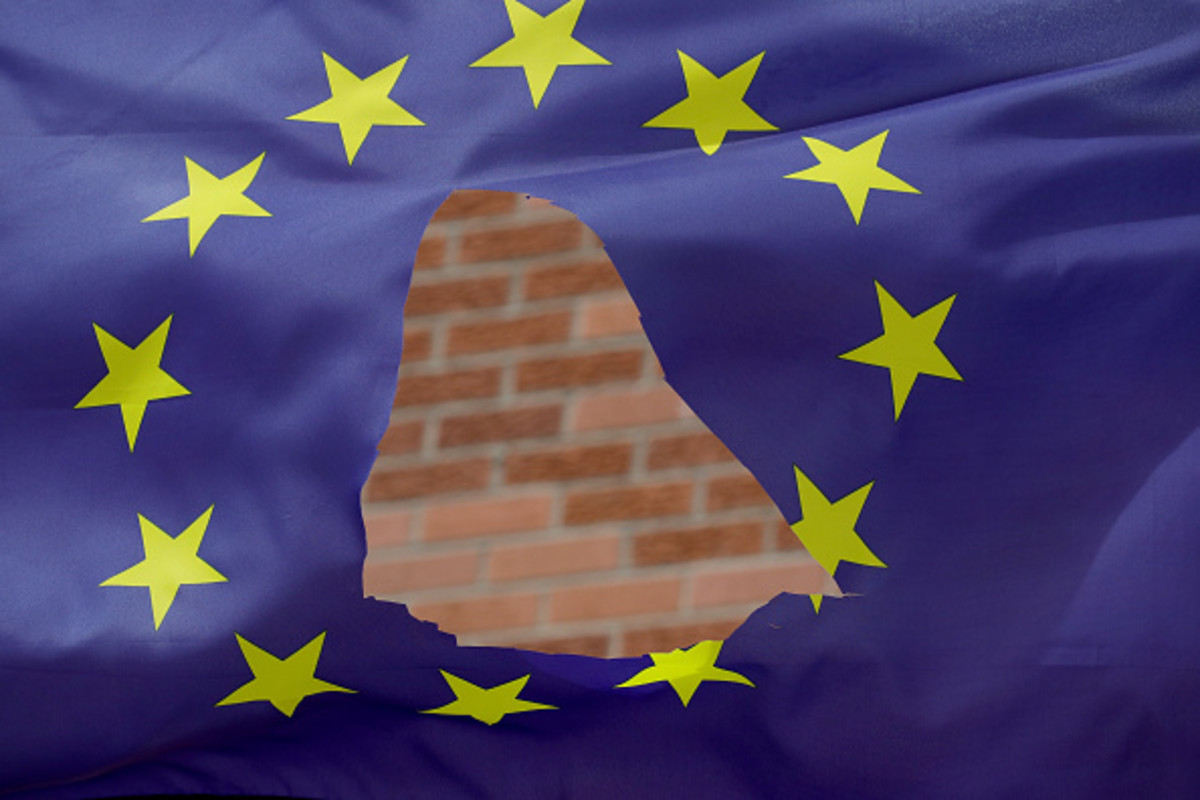
(Photo by Sean Gallup/Getty Images)
This morning representatives of the U.S. Postal Inspection Service boarded a yacht owned by a Chinese billionaire in the Long Island Sound and arrested former Trump campaign manager Steve Bannon for defrauding a charity dedicated to raising private money to build a wall on the southern border.
That’s it. That’s the tweet.
A grand jury indictment against Bannon and three alleged co-conspirators for fraud and money laundering was unsealed this morning in New York and announced at a press conference by Acting U.S. Attorney for the Southern District of New York Audrey Strauss.
Back in 2018, veteran and anti-immigration activist Brian Kolfage set up a GoFundMe to collect donations for Trump’s border wall project, since we’re not even pretending that “Mexico will pay for it” any more. Kolfage called his project “We the People Build the Wall,” but here on Planet Earth, government projects don’t get funded by bake sales. So in December of 2018, GoFundMe told Kolfage he’d have to move the $20 million pot to a dedicated non-profit, or the platform was going to refund it to the donors.
Luckily, Steve Bannon and his shady VC pal Andrew Badolato (no, seriously, that’s his real name!) were there to help. Instead of donating the money to Uncle Sam, they’d build it themselves. So Bannon created a brand new 501(c)(4) called We Build the Wall Inc., and Kolfage set about persuading the donors to allow him to move their cash to his new project.
And indeed, he was very persuasive, promising that “I take $0 no salary no compensation” and “It’s not possible to steal the money” because “I can’t touch that money. It’s not for me. We have bylaws set up.”
Bannon and Badolato snickered at Kolfage’s promises to “refund every penny if the wall doesn’t get built,” high-fiving each other about “the greatest media narrative ever” that “gives [B]rian Kolfage saint hood” while simultaneously hitting up donors to patronize the online coffee shop that was supposed to be supporting Kolfage’s family. But the pitch worked, with most donors agreeing to move their funds to the private wall project, and soon they had $25 million in the kitty.
Kolfage had assured donors that “100% means 100% right? Board won’t see any of that money!” But that wasn’t quite true. According to the indictment, Bannon, who chaired the board, moved more than a million dollars into a different charitable account and then proceeded to dole it out through payments to sham vendors for “social media” work which was never performed, routing $350,000 to Kolfage and using most of the rest for his own personal expenses.
Bannon agreed to pay Kolfage $100,000 upfront and then a $20,000 monthly “salary.” After the first $100,000 went out, Kolfage worried that the charity would have to disclose the payment on its tax forms.
“Better you than me lol,” Badolato texted. Safe bet the prosecutors lol’ed pretty hard at that one, too. And Kolfage’s subsequent bright idea to disguise the $20,000 monthly payments by sending them …
TO HIS WIFE.
Yeah, it’s not really a brains operation here. In October 2019, these geniuses figured out that the feds were on to them, so they quickly deleted all the stuff about not taking any salary from the charity’s website and switched to encrypted messaging. So gangster!
But the postal cops were not thrown off the trail, and now Bannon, Kolfage, and Badolato are charged with fraud and money laundering. And the nice people at SDNY are demanding that these criminal masterminds (lol) hand over a crapton of assets, including accounts held by Ranch Property Marketing & Management LLC, America First Medical LLC, and “White Knights & Vultures LLC.” (OMG, fire the writers!)
The feds would also like the keys to a 2018 Range Rover and “a 2019 Jupiter marine boat named ‘Warfighter.’” And if you guessed that “Warfighter” is a boat that Kolfage sailed in one of Trump’s vaunted boat flotillas that are so much better than real polls, you’d be right.
Naturally Trump has forgotten that he ever knew his former campaign manager, telling reporters this morning, “He worked for a lot of companies. He was involved in our campaign and for a small part of the administration very early on. Haven’t been dealing with him at all. I know nothing about the project other than that I didn’t like it.”
When asked why two of his former campaign managers had been charged with major crimes, in addition to Michael Cohen, Roger Stone, Michael Flynn, and Rick Gates, Trump responded that “there was great lawlessness in the Obama administration.”
And speaking of lawlessness, we can’t help but notice that Bill Barr, who has been twisting the Justice Department into a pretzel to help out Trump’s pals, tried just two months ago to Friday Night Massacre SDNY and put his buddy Jay Clayton in charge. But he failed, and now another character from Trump’s island of misfit toys is under arrest.
Probably a coincidence, right?
US v. Brian Kolfage, et al [DOJ]
Elizabeth Dye lives in Baltimore where she writes about law and politics.





 Kathryn Rubino is a Senior Editor at Above the Law, and host of
Kathryn Rubino is a Senior Editor at Above the Law, and host of 









